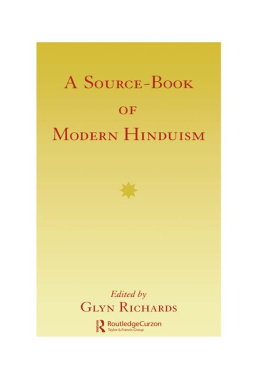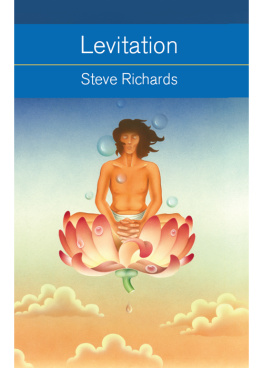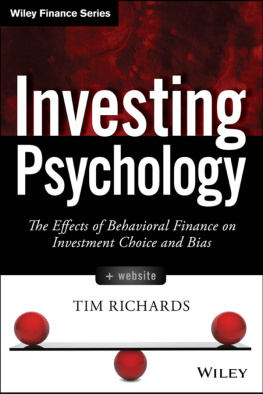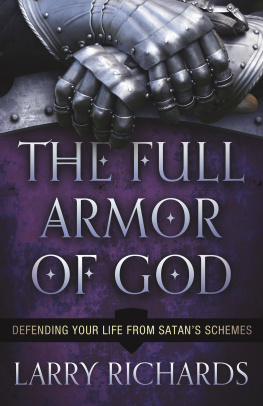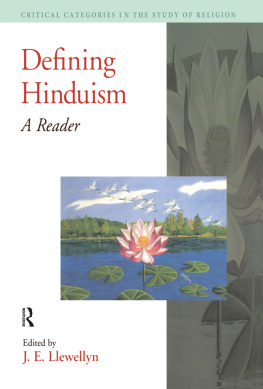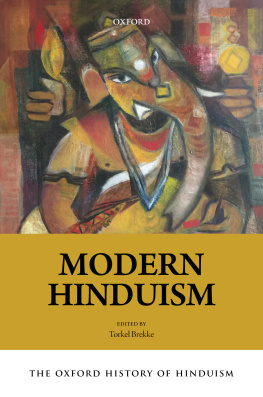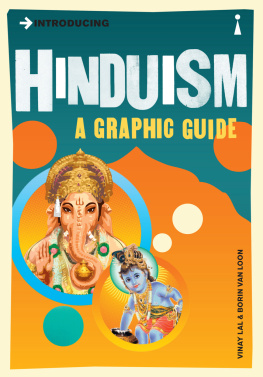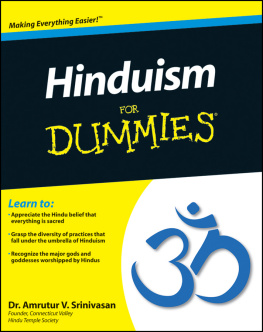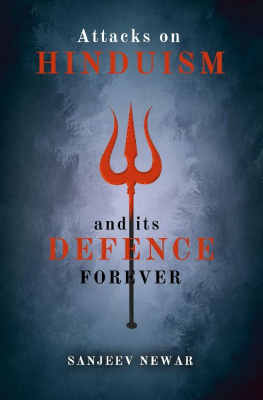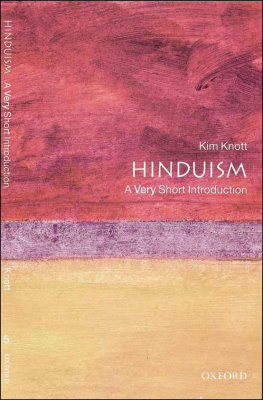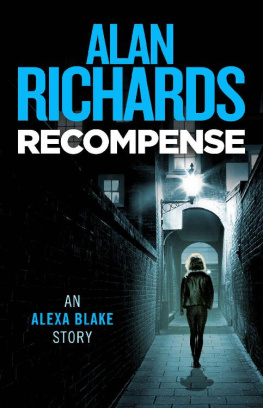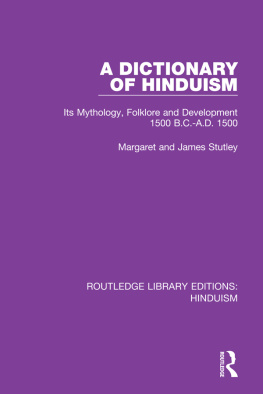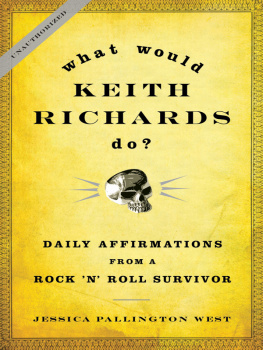Richards - A Source-Book of Modern Hinduism
Here you can read online Richards - A Source-Book of Modern Hinduism full text of the book (entire story) in english for free. Download pdf and epub, get meaning, cover and reviews about this ebook. City: Abingdon, year: 2004, publisher: Taylor & Francis (CAM);Routledge, genre: Religion. Description of the work, (preface) as well as reviews are available. Best literature library LitArk.com created for fans of good reading and offers a wide selection of genres:
Romance novel
Science fiction
Adventure
Detective
Science
History
Home and family
Prose
Art
Politics
Computer
Non-fiction
Religion
Business
Children
Humor
Choose a favorite category and find really read worthwhile books. Enjoy immersion in the world of imagination, feel the emotions of the characters or learn something new for yourself, make an fascinating discovery.
A Source-Book of Modern Hinduism: summary, description and annotation
We offer to read an annotation, description, summary or preface (depends on what the author of the book "A Source-Book of Modern Hinduism" wrote himself). If you haven't found the necessary information about the book — write in the comments, we will try to find it.
Richards: author's other books
Who wrote A Source-Book of Modern Hinduism? Find out the surname, the name of the author of the book and a list of all author's works by series.
A Source-Book of Modern Hinduism — read online for free the complete book (whole text) full work
Below is the text of the book, divided by pages. System saving the place of the last page read, allows you to conveniently read the book "A Source-Book of Modern Hinduism" online for free, without having to search again every time where you left off. Put a bookmark, and you can go to the page where you finished reading at any time.
Font size:
Interval:
Bookmark:
By the same author
THE PHILOSOPHY OF GANDHI
A study of his basic ideas
Edited by
GLYN RICHARDS

First published 1985 by
RoutledgeCurzon
Reprinted 2004
by RoutledgeCurzon
2 Park Square, Milton Park,
Abingdon, Oxon, OX 14 4RN
Transferred to Digital Printing 2006
GLYN RICHARDS 1985
First paperback edition 1996
British Library Cataloguing in Publication Data
A Source-book of modern Hinduism
1. Hinduism History
I. Richards, Glyn
294.509034 BL1150
ISBN: 0 7007 0317 9 (pbk)
ISBN: 0 7007 0173 7 (hbk)
For Hywel, Ann, Geraint and Helen
I have attempted in this volume to compile selections from the works of modern Hindu writers who may be considered to be inheritors of the religious and social traditions of India and who have made an important contribution to the renaissance of Hinduism and the reformation of Indian society. The selection does not claim to be exhaustive in any way but the writers chosen would generally be regarded as leaders of thought in nineteenth and twentieth century India and their views of significance in the development of modern India. The themes which have determined the choice of texts are in the main those relating to religion, social and economic reforms, education and politics. The selection from each writer is preceded by brief biographical details and an assessment of his contribution to Indian society.
I am indebted to the staff of the inter-library loan department of the University of Stirling for their unfailing courtesy and generous help in securing for me a number of the books required for the compilation of this volume; to the staff of the Centre of South Asian Studies at the University of Cambridge for their prompt response to my inquiries and their readiness to photocopy selections from one of the books in their library; to my colleague John Riddy for an extract from one of the letters in the MacNabb archives at Killin, Tayside; and to Mrs Linda Greig for her cheerful co-operation and expert assistance in typing the manuscript. A word of thanks is also due to my students over the years in the course on Modern Hinduism who have shown me the need for a volume of this sort and to my wife for her assistance in preparing the book for the publisher.
I wish to express my appreciation to the following publishers for permission to include in this volume selections from their publications: Oxford University Press for selections from S. Radhakrishnan, Eastern Religions and Western Thought; George Allen and Unwin for selections from S. Radhakrishnan, An Idealist View of Life, The Hindu View of Life, Religion in a Changing World, and from Rabindranath Tagore, The Religion of Man; Macmillan for selections from Rabindranath Tagore, Personality: Lectures delivered in America; and Gitanjali (Song Offerings); Sri Aurobindo Ashram, Pondicherry, for selections from Aurobindo Ghose, The Life Divine, On Himself The Human Cycle, The Ideal of Unity, War and Self-Determination, and The Synthesis of Yoga; Vision Books, New Delhi, for selections from S. Radhakrishnan, Indian Religions; Navajivan Trust, Ahmedabad, for selections from The Selected Works of Mahatma Gandhi, and Nimal Kumar Bose, Selections from Gandhi; Sevagram Ashram Pratishtan, Wardha, for selections from Vinoba Bhave, Democratic Values and the Practice of Citizenship, and Thoughts on Education.
In the extracts which follow, the original spelling and style have been retained. This accounts for occasional variations in rendering the same words and for some inconsistencies in punctuation, even within selections from the same author.
GLYN RICHARDS
RMMOHAN ROY (17721833)
Rammohan Roy has been described as the father of modern India and one of the greatest benefactors of mankind. However difficult the task of making an objective assessment of his role in the renaissance of Hinduism and the modernization of India may be the fact that he made a significant contribution to the reformation of Hindu society and religion is not in question.
He was born in 1772 into an orthodox Hindu family of Brahmins who were engaged in revenue farming under the aegis of the East India Company. Whatever the doubts about his early education at Patna and Benares it is clear that he had a close association with Muslim scholars and under their guidance became well acquainted with Arabic and Persian philosophic literature. At the age of 16 he is reputed to have written a paper questioning the idolatry of the Hindu system and expressing an aversion to British power in India. This aversion, if authentic, must have been overcome during his years of travel throughout India and beyond because on his return home he entered the Bengal Civil Service in the employment of the British. His business acumen and success as an administrator enabled him to accumulate sufficient capital and secure enough income from estates he had purchased to retire. By 1815 he had settled in Calcutta and had begun to devote his time and energy to the task of religious and social reform. He considered religion and politics to be interrelated and believed some change in the Hindu religious system to be necessary if only to secure political and social advantage for the Hindus.
His enthusiasm for reform may be traced in part to Hindu and Islamic thought, including Vedntic philosophy and Muslim theology, and partly to Western ideas including Unitarian doctrines and eighteenth-century European deism. In the religious sphere his reforming zeal took the form of a rejection of image worship as indicative of prejudice and superstition and contrary to reason and common sense. His Vednta grantha, a Bengali translation of the Vednta, sought to establish the unity and supremacy of Brahman as Eternal Being and his work on the Upanishads propounded the idea of nirguna Brahman as one without a second. Image worship, in his view, was worship of an inferior kind and Hindus like other people throughout the world should worship without the aid of images. Equally erroneous were the dietary laws of Hinduism violation of which resulted in more severe penalties than theft or murder. While the latter produced judicial sentences and could be expiated by religious ceremonies and gifts to Brhmin priests, the former were punished by loss of caste and separation from family and friends.
He rejected also the violation of human rights perpetrated in the name of religion involving sati, the burning of widows on the funeral pyres of their husbands. The violent death to which the unfortunate females of India, particularly Bengal, were being subjected was both inhuman and morally indefensible and could only lead to the moral debasement of those who condoned the practice.
In his attempt to enlighten his fellow countrymen Roy promoted journalism, editing newspapers and periodicals in English, Persian (Mirat-ul-Ukhbar) and Bengali (Sambad Kaumadi), brought out Bengali translations of the shastras, and supported Bengali versions of English scientific and literary texts. His stress on the importance of the vernacular is contained in his address to the Hindu community contained in the Sambad Kaumadi pointing out the need for their children to be instructed in the grammar of their own languages and to this end he published a Bengali grammar of his own (Gaudya Vykarad
Font size:
Interval:
Bookmark:
Similar books «A Source-Book of Modern Hinduism»
Look at similar books to A Source-Book of Modern Hinduism. We have selected literature similar in name and meaning in the hope of providing readers with more options to find new, interesting, not yet read works.
Discussion, reviews of the book A Source-Book of Modern Hinduism and just readers' own opinions. Leave your comments, write what you think about the work, its meaning or the main characters. Specify what exactly you liked and what you didn't like, and why you think so.

